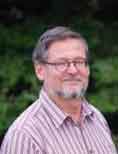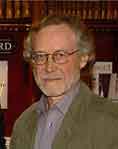Keynote Speakers
(in order of appearance)
Keynote Speaker I:Professor Andy StirlingProfessor of Science & Technology Policy
|
|
|
Keynote presentation title: “Opening Up Sustainability: transitions, transdisciplinarity and transformation!” StirlingA Andy Stirling is an interdisciplinary researcher at SPRU, where he codirects the STEPS Centre and Sustainable Lifestyles Research Group. Focusing on challenges around ‘opening up’ more democratic governance of knowledge, research, science, technology and innovation, his work addresses issues like: uncertainty, precaution, scepticism, sustainability, resilience, diversity, transformation, progress, participation and power. Andy has served on advisory bodies for the EU on Energy Policy, Science in Society, Collaborative Research, Sustainability and Science Governance; for the UK government on toxic substances, GM crops, public engagement and science advice; and working groups of the Royal Society, Nuffield Council, UN IHDP, Global Energy Observatory, Demos and the Green Alliance. He’s served on boards for several journals, Greenpeace International, Greenpeace UK and on the Research Committee of the ESRC.
|
|
Keynote Speaker II:Dr John BarrySchool of Politics, International Studies and Philosophy Associate Director, Institute for a Sustainable World Director, Centre for Sustainability and Environmental Research
|
 |
| Keynote presentation title: “Politics, Ethics and Techno-optimism: Transdisciplinary thoughts on transitions from unsustainability” BarryJ Dr. John Barry is Reader in Green Political Economy within the School of Politics, International Studies and Philosophy at Queens University Belfast. His research focuses on the normative, economic, political and cultural dimensions of the transition from current unsustainable forms of development; peak oil and energy (in)security; public policy and public attitudes towards low carbon energy proposals, heterodox political economy and democratic citizenship and green political theory. His publications include, Rethinking Green Politics (1999, Sage) - winner of the Political Studies Association WJM Mackenzie prize for best book published in political science, Environment and Social Theory (2007, Routledge). His latest book is The Politics of Actually Existing Unsustainability: Human Flourishing in a Climate Changed, Carbon Constrained World (2012, Oxford University Press).
|
|
Keynote Speaker III:Professor Michael NarodoslawskyInstitute for Process and Particle Engineering
|
 |
| Keynote presentation title: “Sustainable regional development and resource utilisation” NarodoslawskyM Study of Chemical Engineering from 1973 to 1981 at the Graz University of Technology, Diploma in Chemical Engineering, Doctoral Study from 1981 to 1985 at the Institute of Chemical Engineering, Graz University of Technology. Head of Institute for Resource Efficient and Sustainable Systems at TU Graz since its foundation in 2003 until end of 2005. Until 2004 he acted as chairman of the National Research Network SUSTAIN that was the first interdisciplinary Austrian initiative at research for sustainability. He headed the European Network ENSURE dealing with urban and regional sustainable development and this capacity took part in a number of European projects, among them SUSCOM (dealing with local agenda 21 activities throughout Europe), Regionet (summarising the sustainable regional initiatives throughout Europe), SUSTEN (analysing the implementation of the RES-E directive in various European countries. His current research work includes life cycle analysis for technologies on the base of renewable resources, regional technology networks for renewable resources and biorefinery development. Prof. Narodoslawsky heads the research group Process Synthesis, Process Evaluation and Regional Development at the TU Graz. He heads the “Bioenergy” Working Group within the SET-Plan Education Task force of the E.C. and chairs the working group “Bioresources” of the European Sustainable Energy Innovation Alliance (eseia).
|
|
Keynote Speaker (late circumstantial withdrawal):Piet Strydom
|
 |
| Piet Strydom, originally an émigré from the apartheid regime, is since 2011 a retired member of the School of Sociology and Philosophy, University College Cork, Ireland. He is associate editor of the European Journal of Social Theory. Besides many articles, some well noted, in anthologies, encyclopaedias and journals, major publications include Contemporary Critical Theory and Methodology (Routledge, 2011), New Horizons of Critical Theory: Collective Learning and Triple Contingency (Shipra, 2009), Risk, Environment and Society (Open UP, 2002), Discourse and Knowledge (Liverpool UP, 2000). He edited Philosophies of Social Science (Open UP, 2003, with Gerard Delanty) as well as special issues of the European Journal of Social Theory (“Social Theory after the Cognitive Revolution”)and the Irish Journal of Sociology. At present, he is continuing his pursuit of a new version of a critical pragmatic social science vitally enriched by an often misunderstood cognitive component. |
|

